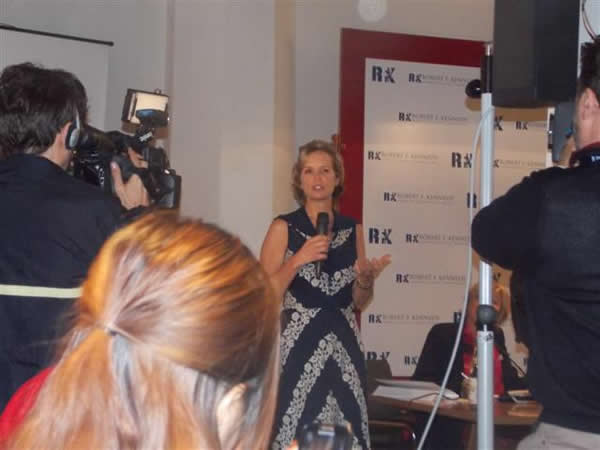Time to question AU’s commitment to good governance, transparency and rule of law
Friday, May 31st, 2013 by Bev ClarkObert Hodzi thinks that the African Union @ 50 is a dream deferred and that the ‘old boys club’ needs a serious overhaul. Here you go:
The African Union has long been accused of being an ‘Old Boys Club’ with neither political will nor a genuine drive to see a reformed Africa. With virtually all African countries being members one would expect nothing short of a vibrant organization capable of stamping its authority when it comes to promoting good governance principles, human rights obligations and purging the scourge of impunity across the continent. 50 years on, Africa stills gruels under various forms of oppression and lack of accountability.
The recent stampede by African leaders to condemn the International Criminal Court (ICC) for ‘race hunting’ in Africa and the clamor to let go Kenyatta, Ruto and Al Bashir is just but one of the many barometers to gauge African Union’s commitment to good governance, transparency and rule of law. It is not just, Al Bashir and Kenyatta but also its response to the Zimbabwean, Swazi, eastern Democratic Republic of Congo and Madagascan crises of governance and general disregard to good governance and human rights obligations that worries many. Mugabe, the President of Zimbabwe, after the much condemned June, 28, 2008 election in his country is on record for saying of African Union members: “We have never interfered in their domestic affairs. Never ever. And now we want a country which wants to point a finger at us and say ‘you have done wrong’. I want to see that finger and see whether it’s clean or dirty”. With the exception of a few leaders like Ian Khama of Botswana no one responded to Mugabe’s challenge. Who then can respond to Al Bashir or Kenyatta? Who among African leaders is clean enough to lay a finger on the two and many others, let alone execute the International Criminal Court’s warrant of arrest against them?
Truth be told, there seem to be no ‘African solution to African problems’ nor is the ‘African Renaissance’ rhetoric anything more than a dream. History proves it. Over a decade after its inception, the African Court on People’s and Human Rights has heard only a few cases; the African Peer Review Mechanism has only had a few volunteers while the New Partnership for Africa’s Development, which aimed at fostering good governance principles and economic liberalization in Africa was dismissed by many as a western initiative. Today, the ICC faces the same old demon; the African Union continues to urge its member states not to cooperate with the ICC first on Al Bashir’s case and now on Kenyatta’s. The enthusiasm with which African countries like South Africa have heeded that call begs a lot of questions: To what extent are African leaders willing to overlook grave human rights atrocities to protect their fellows? Can the AU be trusted with the mandate of ensuring and enforcing accountability, good governance and human rights across the continent? Could Africans afford a good night’s sleep unless the AU is transformed by the renewal of its member states’ leaders? Are any of the African leaders’ conscience clean enough to formulate policies to purge impunity enjoyed by most of them, and are their hands clean enough to execute those policies without fear or favor?
It is this multitude of questions that confronts us today. Possibly it is high time that African leaders are taken to task, both on a national and continental level. It is imperative that the civil society and dreamers of a better governed Africa take their governments to task regarding some of the decisions they make at the AU. It is high time Civil Society Organizations start campaigning for reforms in the AU bearing in mind that unless the AU transforms from an ‘old Boys’ Club’, Africans will continue to suffer at the hands of oppressive leaders who enjoy unquestioned impunity and no reprimand from the continental body.










